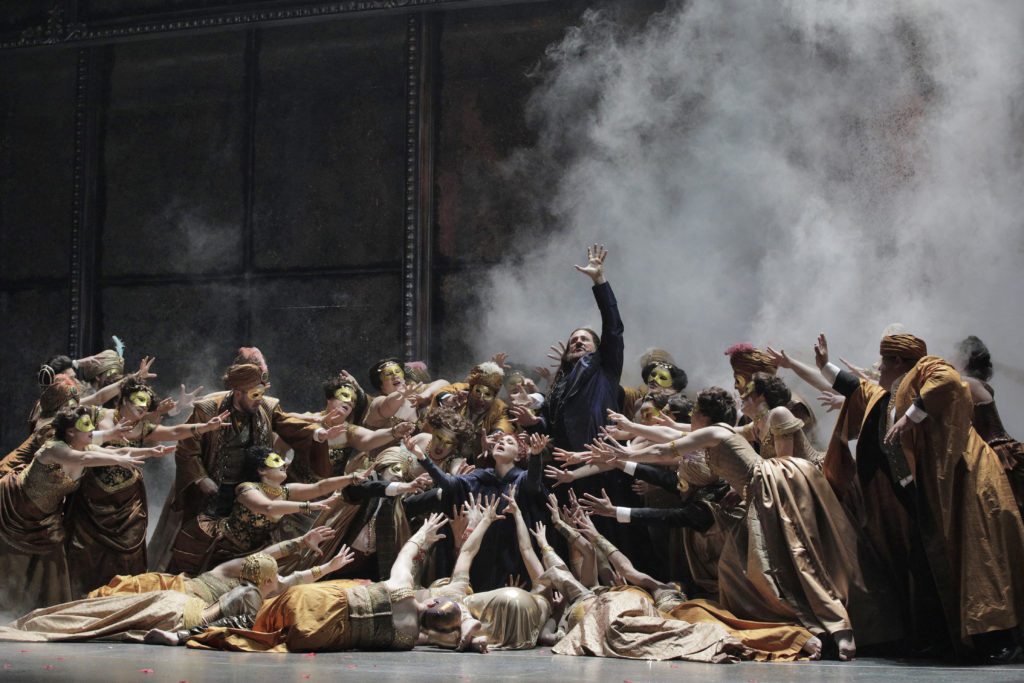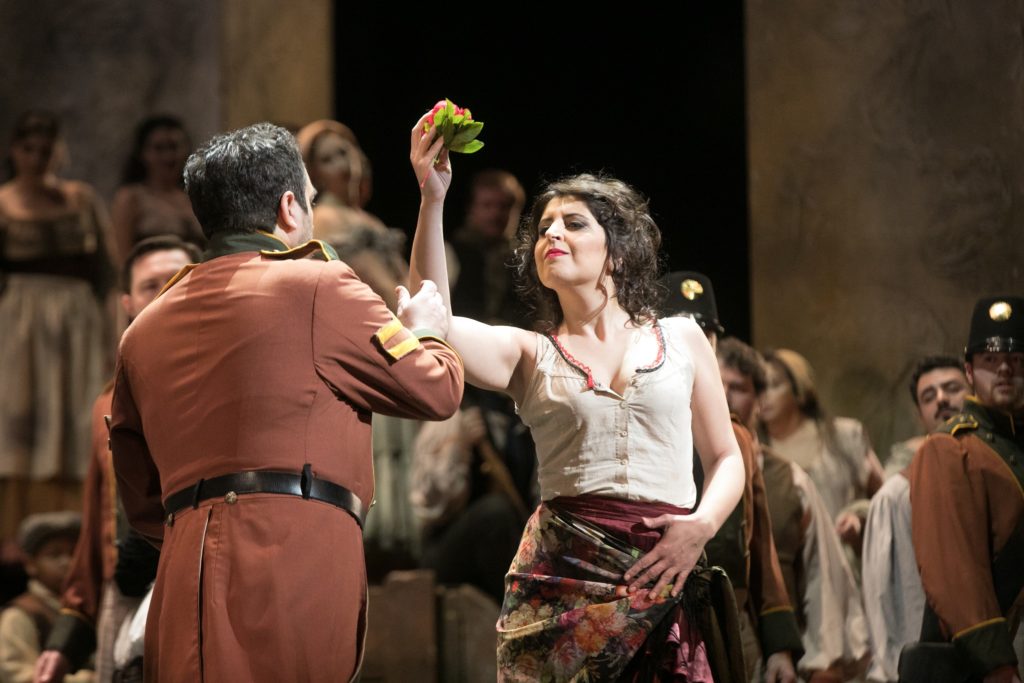Last weekend, the Minnesota Opera closed its 55th season with its first production of Massenet’s unjustly underperformed opera, Thais. Newoutpost’s ties with the mid-western company are strong (this blog, in fact, debuted with their production of Donizetti’s Maria Stuarda back in the winter of 2011), and coupled with our desire to take part in this significant musical event, we embarked in yet another brief musical pilgrimage to beautiful St. Paul. We attended the penultimate performance given on Saturday May 19th, and taking into account the audience’s reaction as well as the artistic values on display that evening, we can happily declare the presentation a complete success.

Gerard Schneider as Nicias, Kelly Kaduce as Thaïs, and Lucas Meachem as Athanaël in Minnesota Opera’s new production of Thaïs. Photos by Cory Weaver
